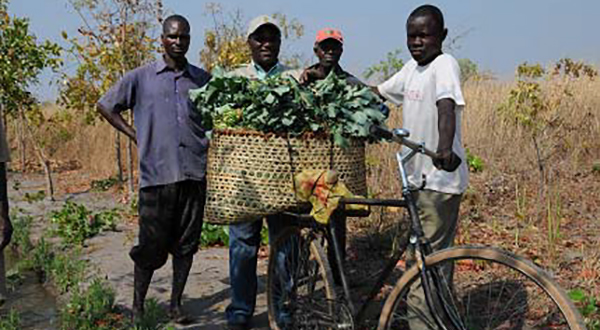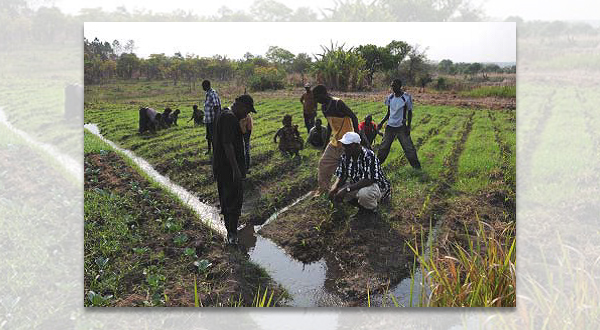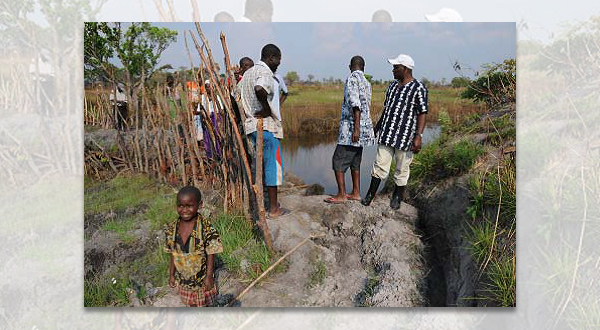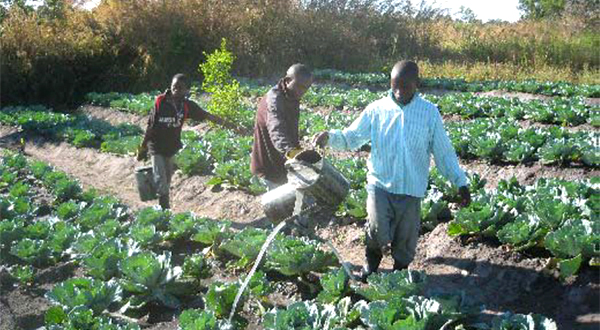31 January 2019

Alex L Kabwe
Principal Irrigation Engineer, Ministry of Agriculture, Zambia
Master of Environmental Science (Water Management)
According to the Global Water Partnership, Zambia has faced a number of challenges in regards to managing their water resources and this has resulted in inadequate supplies to meet the population’s needs and pollution risks.
This access to water is a basic human right which is often threatened when the resource is not properly managed. The issue, very pertinent in Alex L. Kabwe’s home country of Zambia, is why he has pursued a career in water management and the chance to make a real change.
Intent on pursuing this cause, Alex graduated from the University of South Australia this December with a Master of Environmental Science (Water Management) thanks to an Australian Award Scholarship.
Australia Awards Scholarships from the Department of Foreign Affairs and Trade provide opportunities for people from developing parts of the world to drive change and contribute to development in their own countries. Alex explains it was through opportunity he was able to study in Adelaide.

“The Australian Award Scholarship which enabled me to pursue Master of Environmental Science (Water Management) was timely, and it could not have come at a better time than this one, when the skills and knowledge in water management were urgently required in the Ministry of Agriculture in Zambia,” says Alex.
“The qualification from the University of South Australia was the reason for my promotion to the new position of Principal Irrigation Engineer in the Ministry of Agriculture, based at the national headquarters in Lusaka, the capital of Zambia.”
Despite being in the Sub-Saharan region of Africa – with a humid, subtropical climate – Zambia is described as a relatively arid landlocked country, and with the agricultural sector supporting livelihoods of 85% of the population, effectively regulating and conserving water resources is vital.
Access to safe and sustainable water, sanitation and hygiene reduces stunting, improves education quality and learning outcomes, and is essential for the community’s health and wellbeing.
With access to basic sanitation barely improving since 2000 (when it stood at 26%), and basic water coverage in Zambia in 2015 standing at just 61% (86% in urban areas and 44% in rural areas), time is critical in this developing area in the world.

Alex is passionate about providing safe sustainable water options to the Zambian population, especially considering the poorest and most vulnerable communities are usually the hardest hit. A key way to combat this poor water resources management, and aid in the development of the country, is by investing in the agricultural sector. This is something Alex is particularly passionate about and has now dedicated his career to.
“Zambia’s rainfall pattern is from late November to late April. During the rainfall season, farmers cultivate crops that should be enough to sustain household food security and a surplus crop yield sold to supplement household income,” says Alex.
“But the potential to improve subsistence and rainfall dependency farming is significantly huge in Zambia as the country has productive soil for suitable for cropping and abundant sources of water –holding about 40% in the southern Africa sub-region.”
“The Government of Zambia is currently rolling out poverty reduction but sustainable projects through diversification programmes, and the Ministry of Agriculture is implementing programs through irrigation development.”

Alex is playing a key role in these irrigation schemes now being planned in Zambia and developed in the Southern Province, Central Province, and in the Copperbelt of the country.
Agriculture Minister Given Lubinda, is further stressing the importance of this step as farming is one of the main sectors that has contributed to the country’s development, commenting, “farmers need to be empowered to work efficiently with them and boost agriculture exports”.
With his new role as Principal Irrigation Engineer in Hydraulic Structures at the Ministry of Agriculture’s Technical Services Branch – and fresh out of his UniSA degree with all the skills and understanding this provides – Alex is incredibly positive about Zambia and his own future.
“With this knowledge and qualifications I have acquired, the sky is no longer the limit.”


